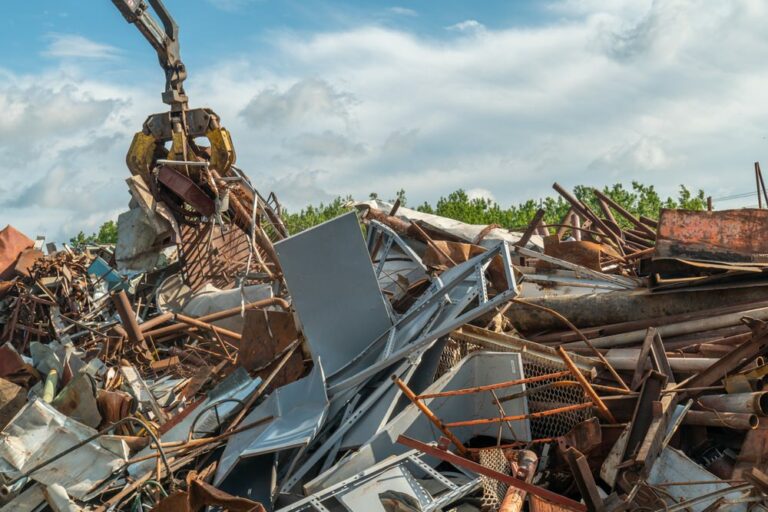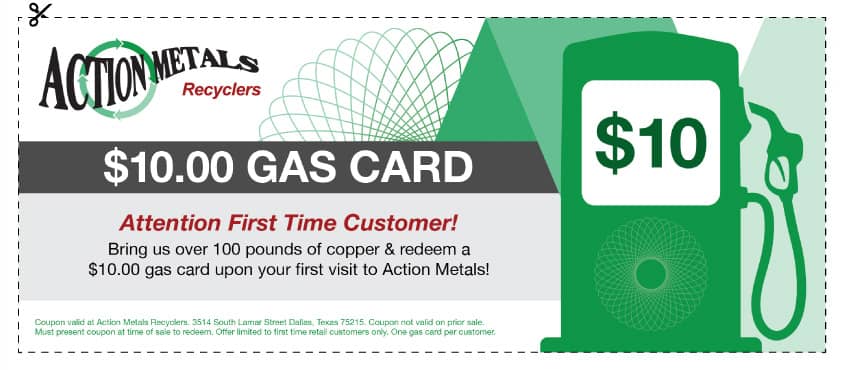At a time when environmental sustainability is paramount, adopting efficient waste management practices has become crucial.
One effective strategy to mitigate waste and promote a greener future is through metal recycling. Recycling metals not only conserves valuable resources but also significantly reduces the environmental impact associated with extracting and processing raw materials.
Let’s explore the significance of reducing waste through metal recycling, the multifaceted benefits it offers, and end on some practical steps and best practices you can use to implement effective recycling strategies.
The Environmental Impact of Metal Recycling
Metal recycling plays a pivotal role in reducing waste and preserving our planet’s health. Let’s examine how metal recycling positively impacts the environment:
How Metal Recycling Reduces Waste in Landfills
By recycling metals, you actively divert a significant amount of waste from ending up in landfills. This reduces the burden on landfill space, which is a growing concern in many communities.
When metals decompose in landfills, they can release harmful toxins into the soil and groundwater, posing a threat to ecosystems and human health. Effective metal recycling helps mitigate this environmental risk.
Conserving Natural Resources
Metals are derived from finite natural resources that require energy-intensive mining and extraction processes. Recycling metals reduces the need to extract virgin materials, conserving valuable resources like iron ore, bauxite, and copper. This doesn’t just mitigate the environmental impact of mining — it also helps preserve natural habitats and biodiversity.
Reducing Greenhouse Gas Emissions
The production of metals from raw materials involves significant energy consumption and releases greenhouse gases into the atmosphere. Recycling metals requires significantly less energy compared to primary production, leading to a substantial reduction in greenhouse gas emissions. This contributes to mitigating climate change and promoting a more sustainable future.
Benefits of Effective Metal Recycling
Embracing effective metal recycling practices yields a wide array of benefits, extending beyond environmental advantages. Let’s explore the economic and social benefits it offers:
Economic Benefits
Recycling metals can lead to substantial cost savings for businesses and industries. By utilizing recycled metals, you can reduce the expenses associated with purchasing and processing raw materials.
Many recycling facilities, like Action Metals Recyclers, offer competitive rates for scrap metal. This presents an opportunity to generate revenue from your recyclable metal waste, turning waste into a valuable resource.
Social Benefits
The metal recycling industry creates a significant number of jobs, contributing to local economies and communities. By supporting metal recycling, you indirectly support job creation and economic growth.
Effective metal recycling fosters a sense of environmental responsibility and community engagement. It encourages individuals and businesses to actively participate in sustainable practices, leading to a cleaner and healthier environment for everyone.
Long-term Sustainability
Metal recycling is a fundamental component of a sustainable future. By adopting effective recycling practices, we can ensure the availability of valuable resources for future generations. This promotes a circular economy where materials are continuously reused and recycled, minimizing waste and reducing our environmental footprint.
Steps to Implement Effective Metal Recycling
To reap the full benefits of metal recycling, it’s essential to implement effective practices. Here are the key steps involved:
1. Sorting and Separating Different Types of Metal
Different types of metals, such as aluminum, steel, copper, and brass, have distinct recycling processes. Sorting and separating metals based on their type ensures efficient recycling and maximizes their value.
2. Choosing the Right Recycling Containers
Selecting appropriate recycling containers is crucial for proper waste segregation and collection. Choose containers that are durable, clearly labeled, and suitable for the types of metal you intend to recycle.
3. Partnering with a Certified Recycling Facility
Collaborate with a reputable and certified recycling facility, like Action Metals Recyclers, to ensure that your scrap metal is handled responsibly and recycled according to industry standards.
Best Practices for Reducing Waste Through Recycling
Adopting best practices further enhances the effectiveness of your metal recycling efforts:
Educating Employees and the Community
Raising awareness about the importance of metal recycling and providing clear guidelines on proper recycling procedures are vital. Conduct training sessions for employees and engage with the community to promote recycling initiatives.
Regular Audits and Assessments of Recycling Processes
Regularly evaluate your recycling processes to identify areas for improvement and ensure optimal efficiency. This includes tracking the amount of metal recycled, assessing the quality of sorted materials, and identifying any potential challenges or bottlenecks.
Promoting a Culture of Sustainability in Businesses and Households
Encourage a culture of sustainability within your organization or household by integrating recycling practices into your daily routines. This includes setting recycling goals, providing incentives for participation, and celebrating successes.
Common Challenges — And How to Overcome Them
While metal recycling offers numerous benefits, certain challenges might arise during the process:
Dealing with Contaminated Metals
Contamination of metals with other materials can hinder the recycling process. Implement proper waste segregation practices to minimize contamination and ensure the quality of recyclable metals.
Ensuring Compliance with Local Regulations
Adhere to local regulations and guidelines regarding metal recycling. Stay informed about any specific requirements for handling and transporting scrap metal.
Overcoming Logistical Barriers
Efficient collection and transportation of scrap metal can be challenging, especially for larger quantities. Partner with a reliable recycling facility that offers convenient pickup and transportation services.
Reduce Your Waste with Action Metals Recyclers
Reducing waste through effective metal recycling is a powerful strategy to promote environmental sustainability, conserve valuable resources, and foster economic and social benefits. By implementing the steps and best practices outlined in this guide, you can contribute to a greener future and create a positive impact on your community and the planet.
Remember: Every piece of metal recycled counts! Let’s work together to build a greener and more sustainable world.
Contact Action Metals Recyclers, your trusted partner in metal recycling, to learn more about our services and how we can assist you in your recycling journey. Together, we can make a difference and reduce waste through effective metal recycling. Reach out today.







